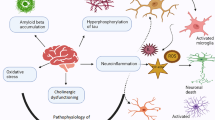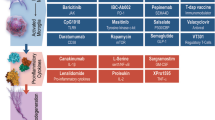Summary
Helicobacter pylori (H.pylori) infection is a recognized risk factor of dementia, while its role and mechanism in Alzheimer disease (AD) remained unclarified. Our previous study has identified that injection of soluble H.pylori filtrate could induce AD-like pathologic changes and cognitive impairment in SD rats. In the present study, we further explored the effect of long-term stomach colonization of H.pylori bacteria on the brains of SD rats. The results showed that H.pylori bacteria gavage induced an efficient colonization of H.pylori in the stomach after four weeks. However, there was no significant change of tau phosphorylation at Thr205 (pT205), Thr231 (pT231), Ser396 (pS396) and Ser404 (pS404) sites in the hippocampus and cerebral cortex. The H.pylori-infected rats also showed no cognitive impairment. These observations may result from inefficient release of bacterial pathogenic factors or the overall lack of host inflammatory responses. We conclude that SD rat with long-term H.pylori colonization in the stomach is not a suitable animal model for exploring the effects of H.pylori infection on brain function in human beings; administration of bacterial filtrates may better reveal the systemic pathologic changes induced by bacterial infection in animals which show a negative host response to bacterial colonization.
Similar content being viewed by others
References
Braak H, Braak E. The human entorhinal cortex: normal morphology and lamina-specific pathology in various diseases. Neurosci Res, 1992,15(1-2):6–31
Arriagada PV, Growdon JH, Hedley-Whyte ET, et al. Neurofibrillary tangles but not senile plaques parallel duration and severity of Alzheimer's disease. Neurology, 42(3 Pt 1):631-639
Grundkeiqbal I, Iqbal K, Quinlan M, et al. Microtubule-associated protein tau. A component of Alzheimer paired helical filaments. J Biol Chem, 1986,261(13):6084–6089
Kountouras J, Tsolaki M, Gavalas E, et al. Relationship between Helicobacter pylori infection and Alzheimer disease. Neurology, 2006,66(6):938–940
Malaguarnera M, Bella R, Alagona G, et al. Helicobacter pylori and Alzheimer's disease: a possible link. Eur J Intern Med, 2004,15(6):381
Kountouras J, Boziki M, Gavalas E, et al. Increased cerebrospinal fluid Helicobacter pylori antibody in Alzheimer's disease. Int J Neurosci, 2009,119(6):765–777
Roubaud C. Impact of chronic Helicobacter pylori infection on Alzheimer's disease: preliminary results. Neurobiol Aging, 2012,33(5):1009.e11-1009.e19
Kountouras J, Boziki M, Gavalas E, et al. Eradication of Helicobacter pylori may be beneficial in the management of Alzheimer's disease. J Neurol, 2009,256(5):758–767
Kountouras J, Boziki M, Gavalas E, et al. Five-year survival after Helicobacter pylori eradication in Alzheimer disease patients. Cogn Behav Neurol, 2010,23(3):199–204
Roubaud Baudron C, Letenneur L, Langlais A, et al. Does Helicobacter pylori infection increase incidence of dementia? The Personnes Agées QUID Study. J Am Geriatr Soc, 2013,61(1):74–78
Wang XL, Zeng J, Feng J, et al. Helicobacter pylori filtrate impairs spatial learning and memory in rats and increases β-amyloid by enhancing expression of presenilin-2. Front Aging Neurosci, 2014,6:66
Wang X L, Zeng J, Yang Y, et al. Helicobacter pylori filtrate induces Alzheimer-like tau hyperphosphorylation by activating glycogen synthase kinase-3β. J Alzheimers Dis, 2015,43(1):153–165
Baudron CR, Chambonnier L, Buissionnière A, et al. An eighteen-month helicobacter infection does not induce amyloid plaques or neuroinflammation in brains of wild type C57BL/6J mice. J Alzheimers Dis, 2015,45(4):1045–1050
Kodama M, Murakami K, Sato R, et al. Helicobacter pylori-infected animal models are extremely suitable for the investigation of gastric carcinogenesis. World J Gastroenterol, 2005,11(45):7063–7071
Sakagami T, Dixon M, O'Rourke J, et al. Atrophic gastric changes in both Helicobacter felis and Helicobacter pylori infected mice are host dependent and separate from antral gastritis. Gut, 1996,39(5):639–648
Danon SJ, Moss ND, Larsson H, et al. Gastrin release and gastric acid secretion in the rat infected with either Helicobacter felis or Helicobacter heilmannii. J Gastroenterol Hepatol, 1998,13(1):95–103
Heneka MT, Carson MJ, Khoury JE, et al. Neuroinflammation in Alzheimer's disease. Lancet Neurol, 2015,14(4):388–405
Author information
Authors and Affiliations
Corresponding authors
Additional information
This study was supported by the research foundation from Hubei Health and Family Planning Commission (No. WJ2015MB152), Natural Science Foundation of Hubei Province, China (No. 2015CKC897 and No. 2017CFA065), National Natural Science Foundation of China (No. 81471304 and No. 31771189) and Integrated Innovative Team for Major Human Diseases Program of Tongji Medical College, HUST.
Rights and permissions
About this article
Cite this article
Zhou, H., Guo, Y., Li, X. et al. Long-term Helicobacter pylori infection does not induce tauopathy and memory impairment in SD rats. CURR MED SCI 37, 823–827 (2017). https://doi.org/10.1007/s11596-017-1813-x
Received:
Revised:
Published:
Issue Date:
DOI: https://doi.org/10.1007/s11596-017-1813-x




